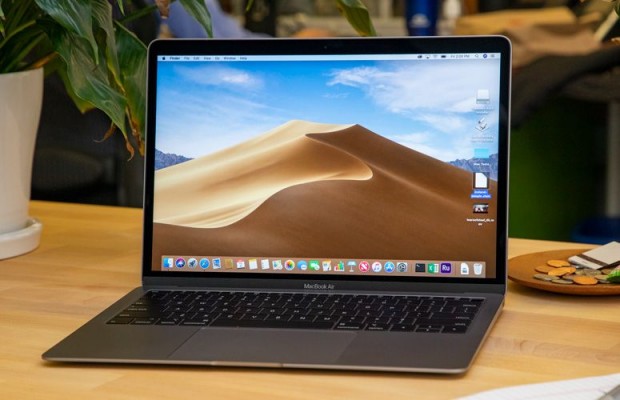Tim Cook Blames Intel for Declining Mac Sales
Apple CEO Tim Cook is blaming Intel for declining Mac sales, as outlined in the Cupertino giant's latest quarterly earnings report.
First spotted by Forbes in notes included with the report, Cook went as far as to say that Mac sales would have improved year-over-year if not for processor shortages. The statement is a not-so-subtle jab at Intel, the only chipmaker Apple uses for its laptops.
“For our Mac business overall, we faced some processor constraints in the March quarter, leading to a 5 percent revenue decline compared to last year," Cook said. "But we believe that our Mac revenue would have been up compared to last year without those constraints, and don’t believe this challenge will have a significant impact on our Q3 results.”
MORE: Apple's iPhone Sales Continue to Slump as Services Surge
Apple's Chief Financial Officer, Luca Maestri, similarly shifted the blame to Intel, stating: "Next I’d like to talk about the Mac. Revenue was 5.5 billion compared to 5.8 billion a year ago, with the decline driven primarily by processor constraints on certain popular models."
Apple's latest revenue report was a mixed bag, with services yet again booming while hardware slumped further. More specifically, Mac and iPhone sales dropped below their targeted revenue goals. The dip in sales comes as Apple faces criticism for faulty laptop keyboards, which caused enough outcry to force Apple to stock its retail stores with the necessary parts for next-day repairs.
If the decline in Apple laptop sales was caused by Intel, instead of malfunctioning keyboards, it could accelerate Apple's rumored move to custom-made ARM-based chip, which is expected to happen by 2021. By doing so, Apple would gain more control over parts manufacturing, and no longer have to rely on Intel. The move to ARM is also expected to harmonize Apple's macOS and iOS products by allowing them to run the same apps.
Sign up to receive The Snapshot, a free special dispatch from Laptop Mag, in your inbox.
Phillip Tracy is the assistant managing editor at Laptop Mag where he reviews laptops, phones and other gadgets while covering the latest industry news. After graduating with a journalism degree from the University of Texas at Austin, Phillip became a tech reporter at the Daily Dot. There, he wrote reviews for a range of gadgets and covered everything from social media trends to cybersecurity. Prior to that, he wrote for RCR Wireless News covering 5G and IoT. When he's not tinkering with devices, you can find Phillip playing video games, reading, traveling or watching soccer.


